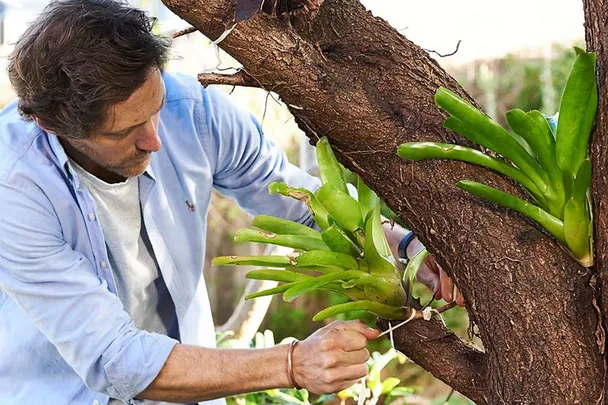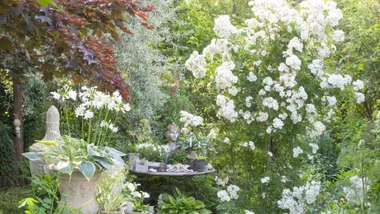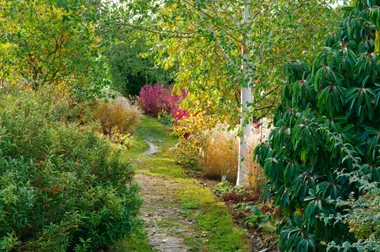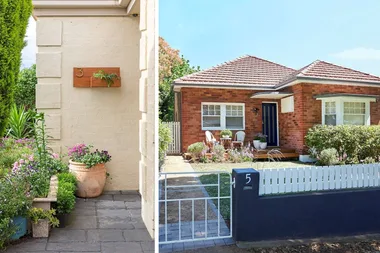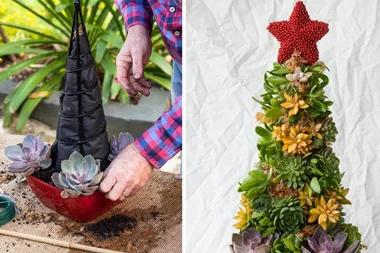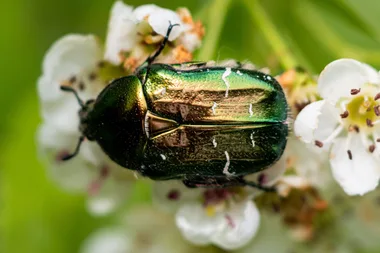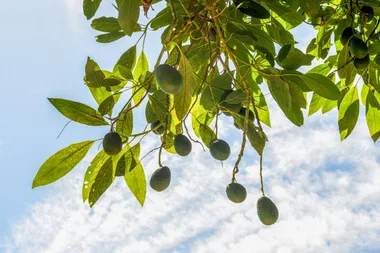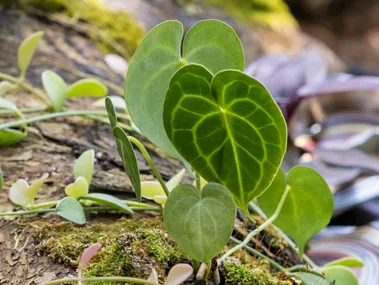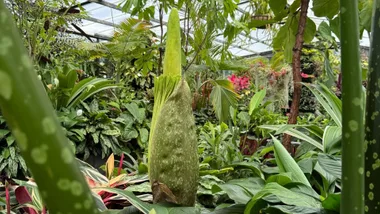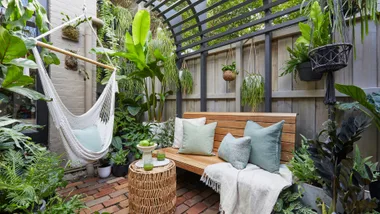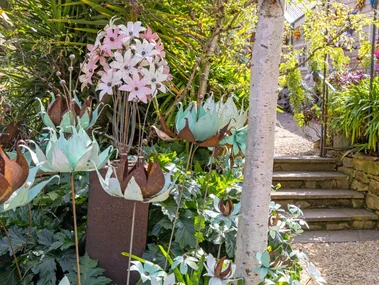Whether you’re landscaping your entire backyard or just looking for a new house plant, there are so many reasons to love bromeliads. They’re easy to grow and propagate, provide great foliage colour and there are so many varieties, you’re bound to find one you like.
This week, Charlie’s chatting to a bromeliad expert to find out the best way to keep them happy and healthy. Plus, he’s planting out an entire small garden with just bromeliads to show you how versatile they can be.
You can recreate a tropical garden environment in your own backyard with a collection of young bromeliads and old pantyhose, plastic-coated wire or fishing line. Then wait for their amazing blooms to emerge to create an exotic, tropical and spectacular garden feature.
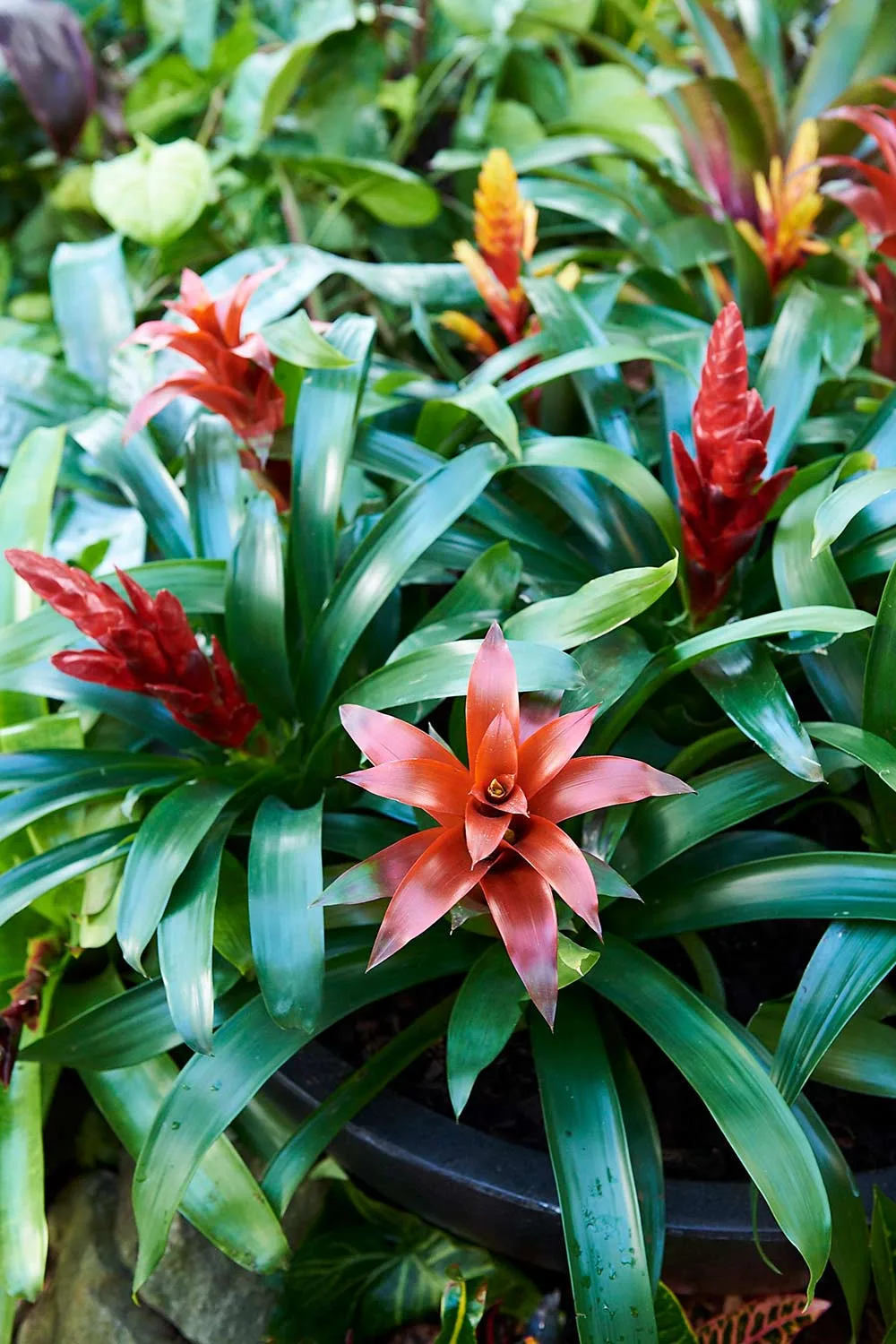
How to hang bromeliads in a tree
1. Use younger, smaller bromeliads. Larger ones are harder to attach and may fall off. The roots of the young plant will grow to support the weight as the plant grows.
2. Select healthy plants with strong root systems and stiff leaves that show no signs of wilting or brown edges.
3. Place in the fork of a tree branch or in a hollow of the tree’s bark as it needs some leverage while the roots grow and grip the bark.
4. Use plastic-coated wire, pantyhose or clear fishing line to tie your plant onto the tree around the lower part of the stem, not the leaves but don’t cut into the roots or the tree branch. Ensure the roots are sitting on the bark.
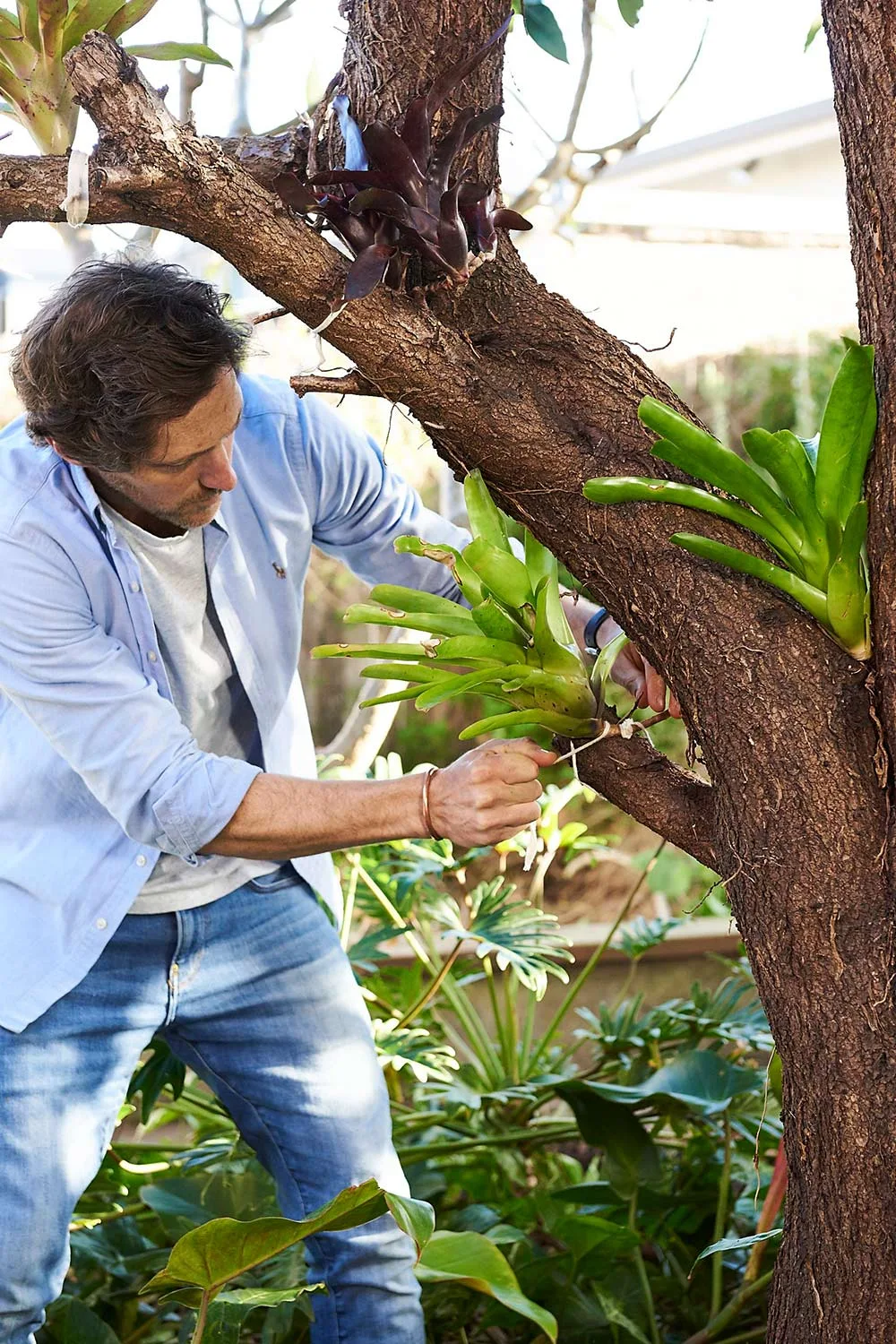
5. Tie securely so it won’t wave in a breeze or the roots won’t be able to make an attachment.
6. If the roots are too small, add a few drops of non-silicone-based glue. It doesn’t hurt the plant and the roots grow around it until they are long enough to grip the bark and hold the plant in place.
7. Cover the roots with Spanish moss or peat moss to keep them moist.
8. Spray half-strength liquid plant fertilizer onto the green leaves.
9. Spray water over the leaves and at the plant base 2-3 times a week in hot weather and weekly in winter.
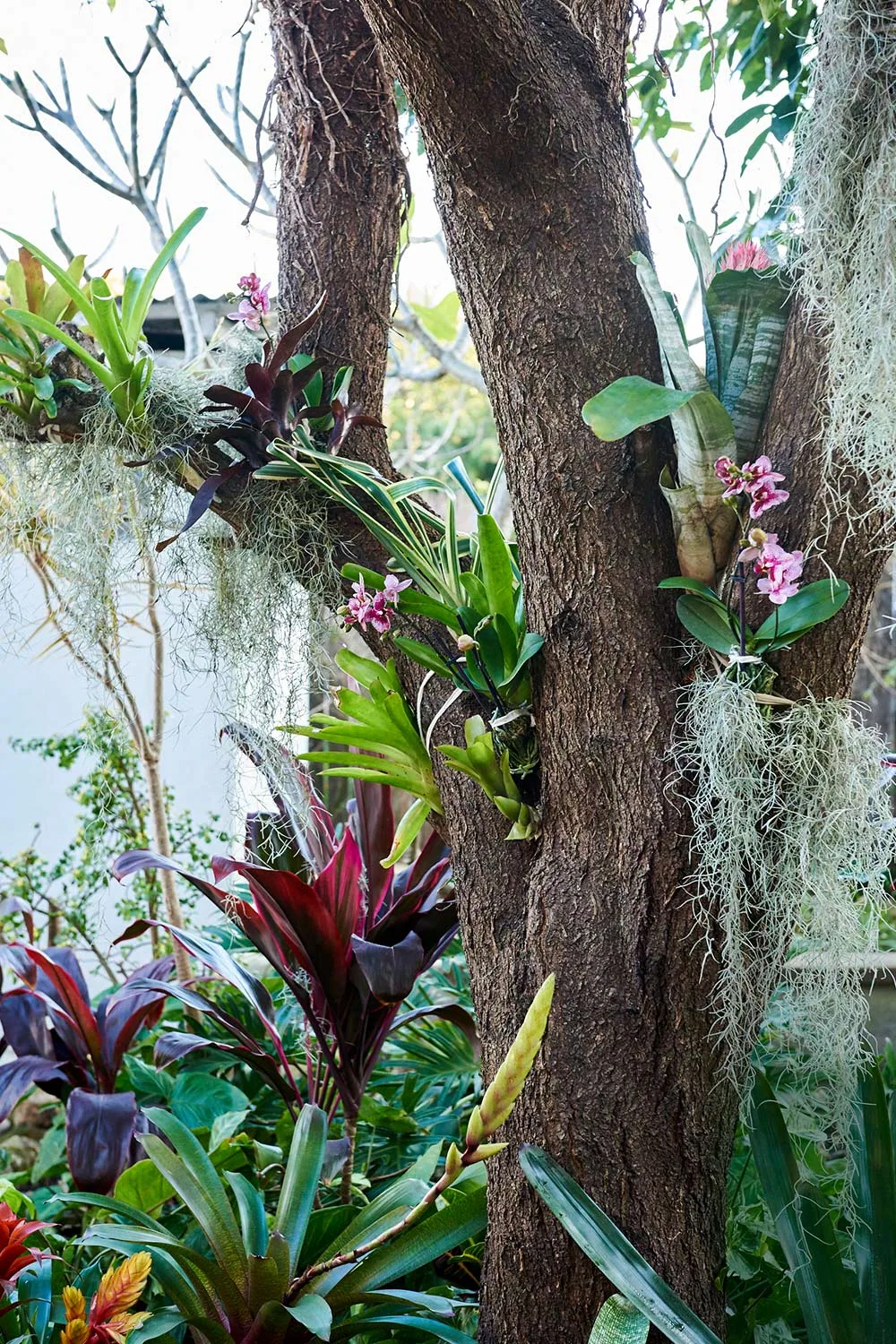
Bromeliads in your garden bed
1. Bromeliads are eye-catching when planted in pots or hanging baskets on balconies and in courtyards.
2. The potting mix should be light and open. Its main purpose is to support and contain the roots, not provide nutrients. Use a combination of half all-purpose mix and half orchid mix.
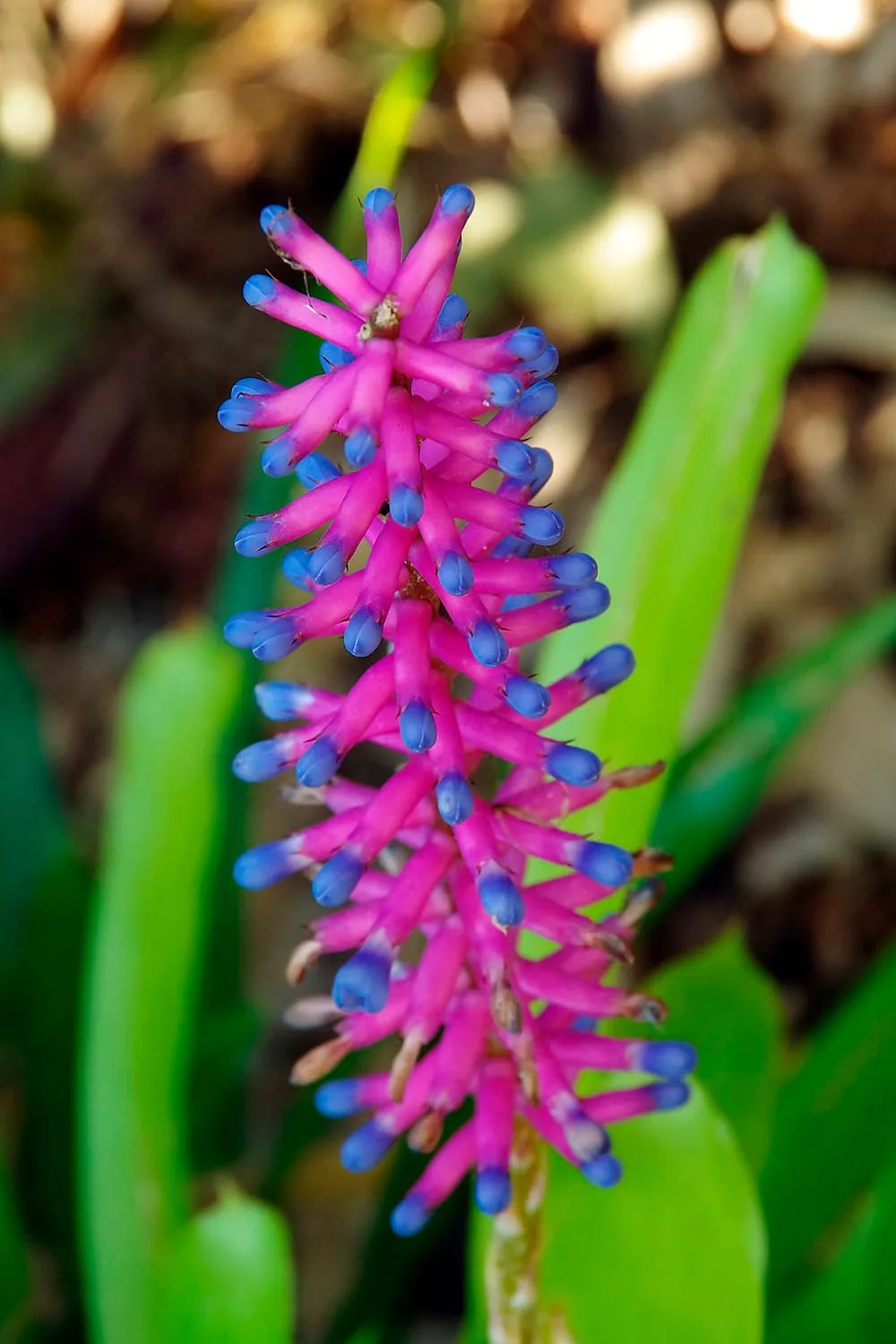
3. The mix should be 10-20mm above the base of the plant. If it is planted too deeply, the roots will rot.
4. Fertilise every 4-6 weeks during the late spring and summer, but not inside the plant as it can build up and burn new growth.
5. Water 2-3 times a week in summer, monthly in winter. Flush the centre cup often to prevent stagnation.
For more information, head to the Royal Botanic Gardens Sydney.
You might also like:
